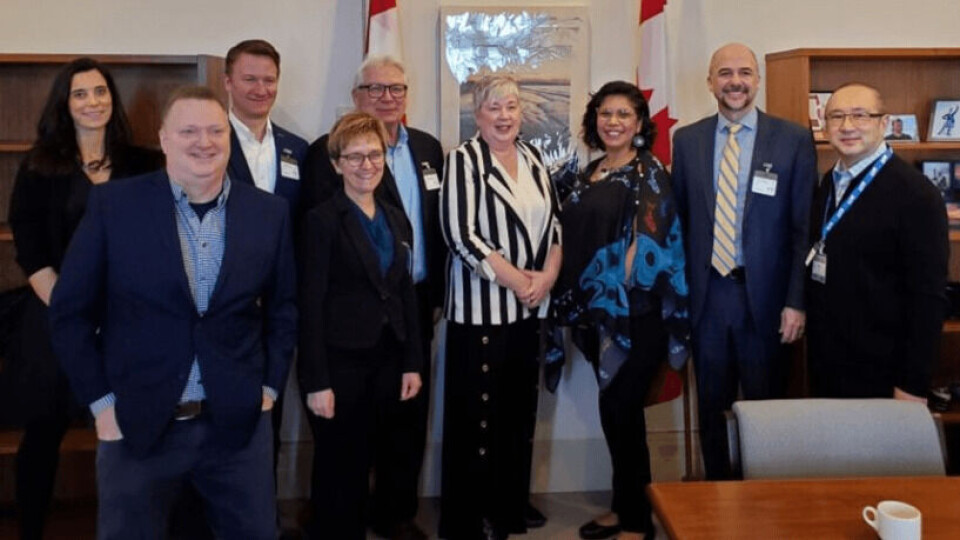
State of Salmon Aquaculture Technologies report unveiled for BC salmon farmers
The Department of Fisheries and Oceans (DFO) has released a report that outlines options for transitioning the British Columbia (BC) salmon farming industry from open net-pen farming.
Members of the aquaculture industry met with fisheries minister Bernadette Jordan to discuss the State of Salmon Aquaculture Technologies report.
The report was unveiled yesterday, which was also Aquaculture Advocacy Day.
Significantly, the report does not completely exclude the use of net-pens. One of four options examined is a “hybrid” system in which smolts are grown to up to 1kg in a land-based facility before being transferred to net-pens for grow-out. This system is already being used by salmon farmers in the Faroe Islands, along with some in Norway.
Parliament Hill
Members of the BC aquaculture industry attended meetings that took place on Parliament Hill in the Canadian capital, Ottawa. Attendees included members of the Kitasoo First Nations Band, Mowi Canada West and the Canadian Aquaculture Industry Alliance.
“Minister Jordan met with members of the Aquaculture Industry Alliance today to discuss our government’s work on a responsible plan to transition the industry away from open net-pen farming in BC. We’re committed to developing a plan by 2025 to transition the industry from open net-pen farming in BC,” said an official statement from Jordan’s office.
“Our government engages with stakeholders and industry, as well as with provincial and Indigenous partners on the best paths forward and we will approach this process in the same way.
“We recognise the value that new technologies can bring to help ensure aquaculture is done in the most environmentally sustainable and economically viable way.”
Sound science
“Along with new technologies this will be informed by sound science, ensuring sustainable growth of this industry and the health of our waters. The report is a crucial next step toward a plan that is evidence based and responsible,” read the statement.
“It examines the economic, environmental and social impacts of different aquaculture technologies, information which will help diversify and strengthen the aquaculture industry.”
New developments
The report highlights new developments along with a global scan of major technological advancements in four production systems that offer new opportunities for producing market-sized salmon:
- land-based recirculating aquaculture systems (RAS)
- hybrids involving land and marine based systems
- floating closed-containment systems (CCS)
- offshore open production systems
Other technologies included in the report address: sensors and control systems, data analysis for “intelligent farming”, feed innovation, transport and logistics, nets and mooring, robotics, and broodstock development.
First Nation
The B.C. government adopted a policy in 2018 stating that in 2022 the Province will grant tenures only to fish farm operators who have negotiated agreements with the First Nation(s) in whose territory they propose to operate.
The Kitasoo/Xai’Xais First Nation and Mowi Canada West has been working together in B.C. waters for over 20 years.
Social media posts made on Tuesday by the Kitasoo Band were positive, “Today Chief Councillor Roxanne Robinson and Councillor Isaiah Robinson are attending meetings with our partners MOWI on Parliament Hill. These meetings are with Ministers and Members of Parliament, stressing the importance of the aquaculture business within our territory.”
To read the full report click here.























































